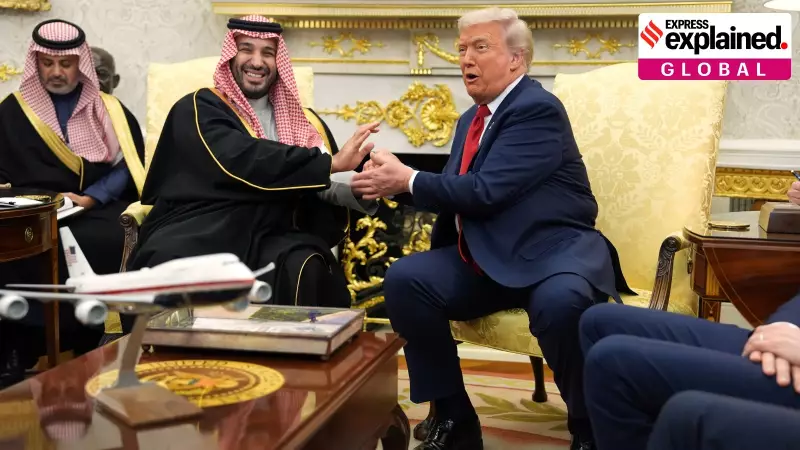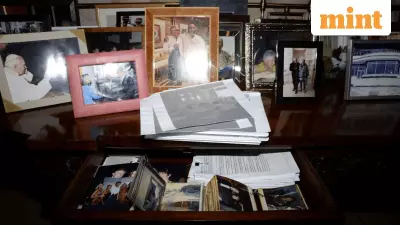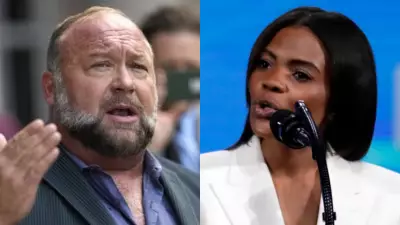
In a significant development at the White House, President Donald Trump has publicly defended Saudi Arabia's Crown Prince Mohammed bin Salman against questions regarding the brutal killing of journalist Jamal Khashoggi. The incident occurred during a meeting in the Oval Office on Tuesday, November 18, 2025.
The Oval Office Confrontation
When questioned about US intelligence agencies' findings that the Crown Prince had approved the 2018 killing of Washington Post columnist Jamal Khashoggi, President Trump responded defensively. "You're mentioning somebody that was extremely controversial," Trump stated, referring to Khashoggi. "A lot of people didn't like that gentleman that you're talking about. Whether you like him or didn't like him, things happen, but he knew nothing about it."
The President further attempted to shield the Saudi leader from additional scrutiny, adding: "And would you leave it at that? You don't have to embarrass our guest by asking a question." This protection of the Saudi Crown Prince comes despite compelling evidence from US intelligence agencies.
Who Was Jamal Khashoggi?
Jamal Khashoggi was a veteran journalist and influential opinion maker with deep connections in both the Middle East and United States. Educated in American colleges, his career spanned decades and crossed paths with some of the most significant figures in modern Middle Eastern history.
During the late 1970s, while working as a reporter in Afghanistan, Khashoggi developed a friendship with Osama bin Laden. He traveled extensively with the future al-Qaeda leader and authored one of the first profiles about him in 1988. However, despite this association, Khashoggi consistently opposed bin Laden's Islamist radicalism.
Though he had been a member of the Muslim Brotherhood in his earlier years, Khashoggi gradually became more secular in his outlook. His professional career saw him appointed as editor of the Saudi newspaper Al Watan in both 2003 and 2007, but he lost the position each time after publishing criticism of religious extremism.
In 2015, he attempted to launch a television network called Al-Arab, which was shut down within days of its inception. According to his Washington Post colleague David Ignatius, Khashoggi remained "the kind of journalist who annoys the authorities" throughout his career.
As Crown Prince Mohammed bin Salman consolidated power after 2015, Khashoggi's criticism increasingly focused on the young leader. Ignatius noted that the journalist considered the Crown Prince an "impulsive hothead." In 2017, Khashoggi relocated to Washington DC, where he continued his critique of the Prince through his regular column for The Washington Post.
The Istanbul Consulate Tragedy
The events leading to Khashoggi's death began on October 2, 2018, when he visited the Saudi consulate in Istanbul. His purpose was to obtain documentation required under Turkish law to marry his Turkish fiancée, Hatice Cengiz. Cengiz accompanied him to the consulate entrance and waited outside while Khashoggi entered the building at 1:14 PM local time.
When the journalist failed to emerge after approximately ten hours, Cengiz raised the alarm, initiating what would become an international incident. For more than two weeks, Saudi authorities repeatedly denied any knowledge of Khashoggi's whereabouts or what had transpired.
The official narrative changed dramatically on October 20, when the Saudi government acknowledged that Khashoggi had died during what they described as a "fight" after he resisted attempts to return him to Saudi Arabia. Further details emerged on November 15 from the Saudi Public Prosecutor's office, revealing a much more sinister sequence of events.
According to Saudi prosecutors, Khashoggi had a physical altercation with a "negotiations team" dispatched to Istanbul by the Saudi deputy intelligence chief. During this confrontation, the journalist was injected with a lethal dose of sedative. His body was subsequently dismembered. The prosecutor's office stated that five individuals had confessed to the murder while maintaining that "[the crown prince] did not have any knowledge about it."
US Intelligence Findings
On February 26, 2021, the administration of President Joe Biden declassified an intelligence report that directly contradicted Saudi claims of the Crown Prince's innocence. The report concluded that Mohammed bin Salman had approved the operation to capture or kill Khashoggi.
This assessment was based on multiple factors, including the prince's "control of decision-making in the kingdom," the direct involvement of his key adviser and members of his protective detail in the operation, and his demonstrated "support for using violent measures to silence dissidents abroad, including Khashoggi."
The intelligence community further determined that Salman's "absolute control" over Saudi Arabia's security and intelligence organizations made it "highly unlikely" that Saudi officials would have carried out an operation of this magnitude without the prince's explicit approval.
The tension between diplomatic relationships and human rights concerns continues to shape international responses to this case, with President Trump's recent defense of the Saudi Crown Prince highlighting the complex geopolitical calculations involved.





